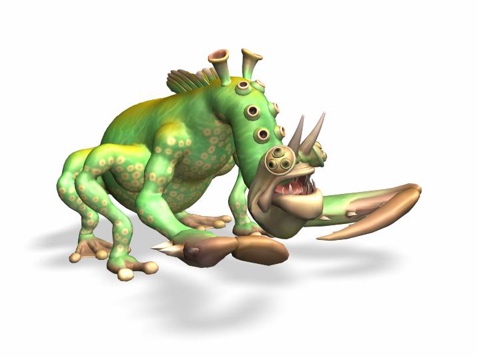Internet trade in rare animals exposed
Rare salamander could be driven to extinction

Online trading in rare animals could well drive a rare salamander to extinction, according to latest reports from conservation groups.
The Kaiser's spotted newt (Neurergus kaiseri) is found only in Iran, and could well be the first animal to be made extinct by unregulated e-commerce and trade in rare species.
Warnings from conservationists
Amphibian enthusiasts are willing to pay up to £200 for one of these beautifully-coloured newts, but many don't realise that they could well be driving the species to extinction.
Conservationists warn that dealers are advertising rare breeds such as the Kaiser's spotted newt on the internet. A recent investigation by the wildlife trade monitoring agency Traffic found 10 websites claiming to stock the species.
The wild population of the rare newt is found in only a few streams in Iran's Zagros Mountains, and monitoring of the numbers showed that the population was down by 80 per cent between 2001 and 2005 and that it is now classed as critically endangered, with under 1,000 mature individuals left in the world.
A proposal to ban the trade has been put forward by Iran at the conference of the Convention on International Trade in Endangered Species (Cites), in Doha.
Get daily insight, inspiration and deals in your inbox
Sign up for breaking news, reviews, opinion, top tech deals, and more.
"The internet itself isn't the threat, but it's another way to market the product," said Ernie Cooper, of Traffic Canada. "The Kaiser's spotted newt, for example, is expensive and most people are not willing to pay $300 for a salamander. But through the power of the internet, tapping into global market, you can find buyers."
Regulating online and virtual markets in rare species online is a huge and growing challenge for Cites members, who hope to develop closer collaboration with Interpol, the international law enforcement agency to combat the problem.
Via The Independent
